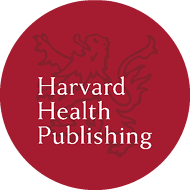Providing Whole Health Care for New and Expectant Mothers with Substance Use Disorder
According to the National Institute on Drug Abuse, about five percent of pregnant women use one or more addictive substances during pregnancy. This increases risk of stillbirth, premature birth, drug withdrawal in newborns, birth defects, and long-term cognitive and behavioral conditions. Women with substance use disorder (SUD) are more likely to have concurring mental health conditions, feelings of guilt, and pregnancy complications. Effective care requires whole-health services that address both physical and behavioral health.
Project RESPECT
One prominent example of a pregnancy-focused substance use clinic is found at Boston Medical Center (BMC), which is recognized as the premier treatment center in Boston for pregnant women with substance use concerns, particularly lower-income and minority women. Building on their long experience, 20 years ago BMC established Project RESPECT (Recovery, Empowerment, Social Services, Prenatal care, Education, Community and Treatment), a specialized substance use clinic for pregnant women and new mothers that currently treats between 150 to 200 mother-baby pairs each year. Referrals come from their well-established connections within the local community, including withdrawal management facilities or substance use treatment centers. They have recently expanded their reach to methadone clinics, jails, and residential treatment centers.
While the program initially started with an emphasis on treating women with opioid use disorder (OUD), they now also see women with substance use disorders related to stimulants, marijuana, and alcohol.
“Treatment for substance use disorder must focus on the disorder, not the substance,” said Kelley Saia, MD, medical director of Project RESPECT. “So our intent is to deliver a program that treats the disease process and the unique situation of every pregnant person.” Care begins immediately upon referral and extends through pregnancy and one-year postpartum.
Saia emphasizes that a multidisciplinary team approach is fundamental to any clinic focused on treating pregnant women with substance use concerns. Project RESPECT’s treatment model includes specialists in high-risk maternal-fetal medicine, family medicine, and addiction medicine, as well as nurse care managers specializing in substance use disorder in pregnancy, a perinatal psychiatrist specializing in gender-specific care and trauma, social workers, a peer recovery coach, and a child life specialist. Just this year, Project RESPECT launched its inaugural addiction medicine fellowship.
Recognize Fundamental Common Areas of Concern
Project RESPECT is just one of several similarly-focused programs across the country, including the Comprehensive Addiction and Pregnancy Program (CAP) at The Johns Hopkins Bayview Medical Center in Baltimore, MD. CAP provides comprehensive care for pregnant and parenting women with SUD. Like Project RESPECT, CAP treats new mothers and pregnant women according to each unique situation.
In published research, CAP has identified three consistent themes among pregnant women with SUD:
- Major motivators to seek SUD treatment include seeking daily structure, concern for the health of the baby, homelessness, and desire to retain custody of the baby and other children;
- Hesitation to seek treatment because of not wanting to leave children or a partner at home, fear of punitive measures or loss of custody, and lack of information about available treatment options; and
- Logistical barriers to treatment including lack of childcare and transportation and limited housing availability.
In the same paper, the study authors concluded that the ability to access comprehensive, gender-specific, and trauma-informed treatment during pregnancy can be critical for the health of women with SUD and their children.
Partnerships with Community Organizations
Successful treatment models don’t just provide excellent medical care within a healthcare setting. The other piece of their success relies on partnerships with community organizations for needed supports.
For example, when a woman is seen in clinic or a hospital in acute distress, she can be admitted to the hospital, stabilized, and seen by in-hospital team members. But the stabilization is not just pharmacologic. Women are connected with mental health, social work, and community organizations that can assist with services such as housing and residential treatment after discharge. As an example, Project RESPECT collaborates with Entre Familia, a Boston-based residential treatment program for pregnant and postpartum women and their families.
Research shows that the two greatest periods of peak vulnerability for an overdose are 6 to 8 weeks after delivery and then again 7 to 12 months postpartum. To address that reality, clinics need to connect clients to community resources to provide relapse prevention services, support, and overall care coordination. Project RESPECT accomplishes this mission by partnering with Project Promise, a day treatment program serving pregnant and parenting women and their children, and Project NESST (Newborns Exposed to Substances: Support and Therapy).
Research from Project RESPECT supports clinicians and policymakers designing holistic models of care for postpartum women with SUD focusing on five domains most impactful to their experiences: healthcare, personal factors, legal, housing, and employment.
“When we look at our outcome measures for success postpartum, we see that the physician touch points are important, especially for providing pharmacotherapy to treat substance use disorders,” said Saia. “But the postpartum social work support, behavioral health services support, and recovery work is the most vital.”

